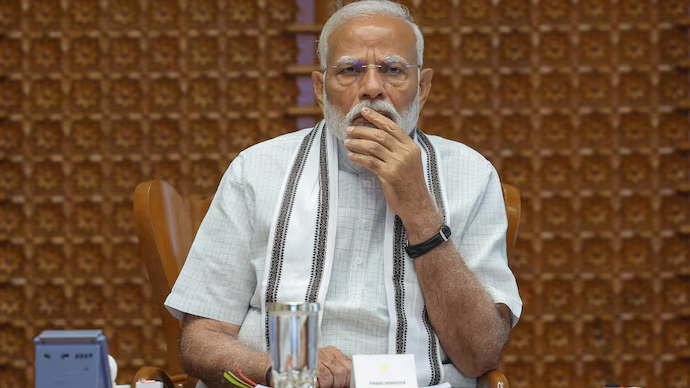The Bharatiya Janata Party’s (BJP) sweeping victory in Delhi, reclaiming power after more than 26 years, carries significant implications for India’s financial markets and broader economic landscape. The party secured 48 out of 70 assembly seats, dismantling the stronghold of the Aam Aadmi Party (AAP) and marking a major political shift in the national capital. This decisive win, following the party’s dominance in other key state elections, signals political stability—a factor that historically boosts investor confidence and market sentiment.
Political stability is often viewed as a positive driver for financial markets, as it reduces policy uncertainty and ensures continuity in economic reforms. The BJP’s strong mandate in Delhi could accelerate the implementation of key economic policies, particularly in areas like infrastructure development, urban planning, and regulatory reforms. Investors typically respond favorably to such prospects, anticipating smoother policy execution and reduced bureaucratic hurdles.
Looking at historical precedents, BJP’s major electoral victories have frequently coincided with bullish trends in the stock markets. For instance, after the 2014 general elections, when the BJP secured a majority under Prime Minister Narendra Modi, the Sensex surged over 1,200 points on the day of the results. The markets were buoyed by expectations of economic reforms, fiscal discipline, and a pro-business environment. Similarly, the party’s win in Uttar Pradesh in 2017 led to a rally in banking and infrastructure stocks, driven by optimism about improved governance and policy implementation.
The BJP’s Delhi win may also reinforce the government’s fiscal agenda ahead of the Union Budget. With stronger political capital, the central government could pursue bold reforms in sectors like real estate, energy, and digital infrastructure. Additionally, it may lead to increased public and private investments in Delhi, given the party’s focus on urban development and smart city projects.
However, while markets may react positively in the short term, the long-term impact will depend on the government’s ability to deliver on its promises. Economic growth, inflation control, fiscal discipline, and employment generation remain critical factors. Moreover, the BJP’s victory in Delhi could influence investor perceptions of regional political dynamics, affecting capital flows and business sentiment across North India.
What This Means for AAP’s Political Future
The BJP’s decisive victory in Delhi poses significant challenges for the Aam Aadmi Party (AAP) as it navigates its political future. Having dominated Delhi’s political landscape since 2015, AAP now faces the daunting task of rebuilding its support base and re-evaluating its strategies. The party’s defeat, particularly the loss of its leader Arvind Kejriwal’s New Delhi seat, signals a shift in voter sentiment and raises questions about the sustainability of AAP’s governance model centered on welfare schemes and grassroots activism.
Historically, regional parties have struggled to regain lost ground after such sweeping defeats, as seen with the Congress in Delhi post-2013. AAP will need to introspect on its policy priorities, leadership dynamics, and engagement with diverse voter demographics. The party’s ability to adapt to the evolving political landscape, address governance criticisms, and present a compelling vision for Delhi’s future will be crucial.
Moreover, AAP’s national ambitions could face setbacks, as the Delhi loss undermines its credibility as a formidable alternative to national parties. The party might pivot towards strengthening its presence in other states like Punjab, where it still holds significant influence, while recalibrating its strategy in Delhi to regain voter trust. The coming years will be pivotal for AAP as it seeks to redefine its political identity and relevance in India’s dynamic electoral arena.
To sum up, the BJP’s return to power in Delhi is likely to bolster market confidence, reflecting expectations of policy continuity and economic reforms. As with past instances, the initial market reaction may be optimistic, but sustained growth will hinge on the government’s performance in driving economic progress and addressing key structural challenges.
